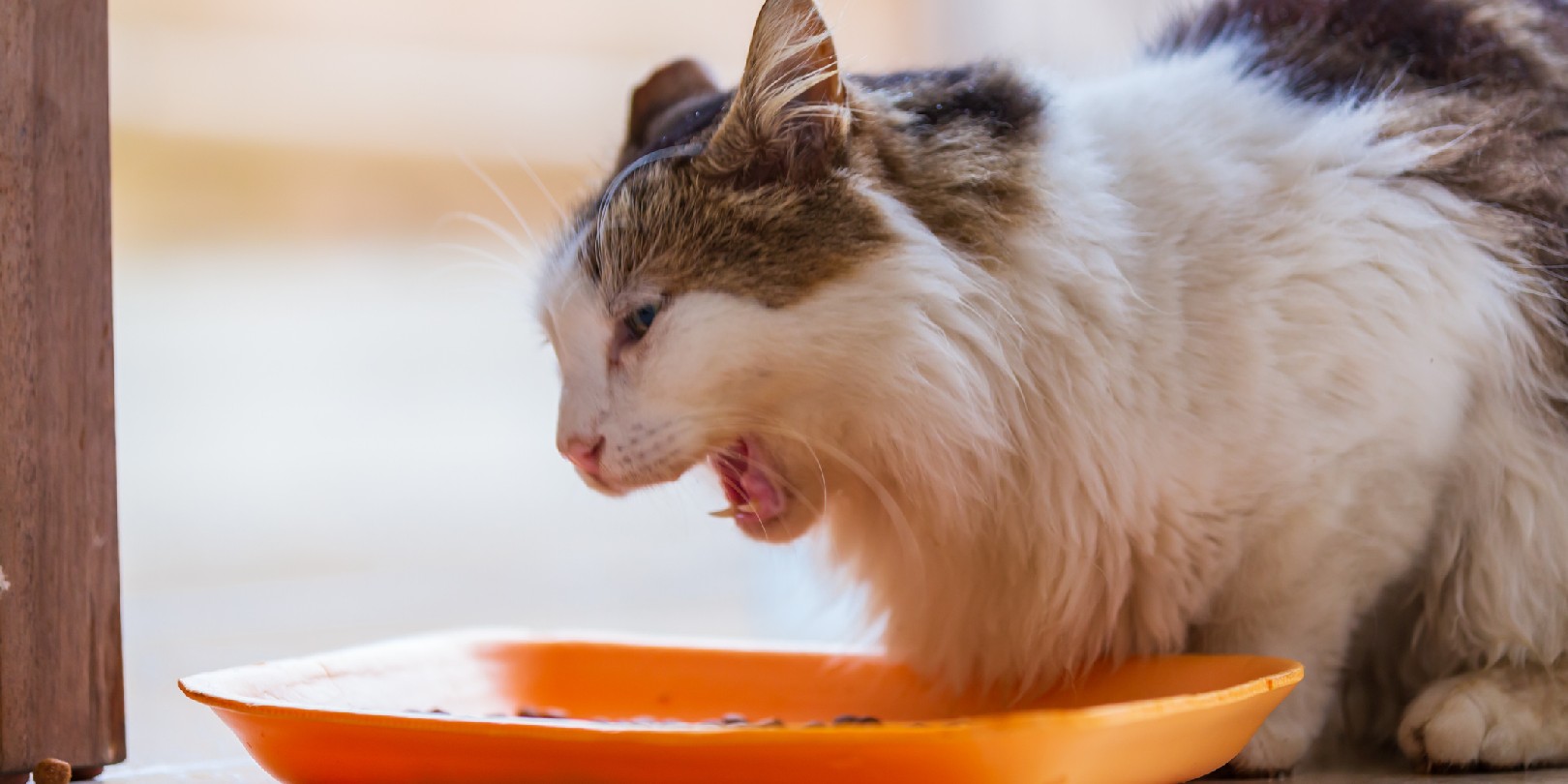4 Home Remedies for Cat Vomiting

Cats are thorough groomers, but they sometimes need an extra bit of help to keep them healthy. Vomiting is one of the most common issues cats face, and while it’s usually not serious, it can make your pet uncomfortable and cause you to worry.
In this post, we’ll share our top four home remedies for cat vomiting, so you can help your pet feel better without a trip to the vet. We’ll also discuss some causes of cat vomiting and how to resolve the issue without extreme or expensive measures. Plus, we’ll show you the warning signs you should never ignore when it comes to your furry friend. Read on to learn more!
1. Withhold Food for a Short Period
If your cat has vomited once or twice but otherwise appears normal and is not showing any signs of distress, you can try withholding food for a short period. This allows your cat’s stomach to settle and gives it time to recover. You can skip one or two regular meals, but always ensure it has access to fresh water to prevent dehydration. After a few hours, gradually reintroduce a small amount of bland food, such as boiled chicken or dry cat food, and monitor your cat’s condition closely.
2. Offer Small and Frequent Meals
Once your cat’s stomach has settled after a short period of food withholding, you can start offering small portions of wet or dry cat food more frequently throughout the day. Avoid feeding your cat large meals that may overwhelm their digestive system. Opt for easily digestible foods, such as boiled chicken or fish, and consider feeding them in small portions multiple times a day to help prevent vomiting caused by overeating.
3. Use Hairball Remedies
If your cat is prone to vomiting because of hairballs, you can try using hairball remedies available in pet stores or prescribed by your veterinarian. Hairball remedies typically come in the form of gels or treats and contain ingredients that help lubricate the digestive tract, allowing hairballs to pass through more easily. Follow the recommended dosage instructions and monitor your cat’s condition closely.
4. Provide a Calm and Stress-Free Environment
Stress and anxiety can also trigger vomiting in cats. If you suspect that your cat’s vomiting may be due to stress, try providing it with a calm and stress-free environment. Ensure your cat has a quiet and comfortable space to rest away from potential stressors, such as loud noises or other pets. Consider using pheromone diffusers or calming supplements under the guidance of your veterinarian to help reduce your cat’s stress levels as well.
Warning Signs to Not Ignore
While these home remedies can be helpful in mild cases of cat vomiting, it’s crucial to remember that persistent or severe vomiting can be a sign of an underlying health issue that requires professional veterinary care. If your cat’s vomiting continues or is accompanied by other concerning symptoms, such as lethargy, diarrhea, or blood in vomit, it’s essential to seek veterinary attention promptly for proper diagnosis and treatment.
Final Thoughts!
Cat vomiting can have various causes, so it’s crucial to identify and address the underlying issue. Home remedies may help alleviate mild cases of cat vomiting. Remember to always consult with your veterinarian for proper diagnosis and treatment, however, especially if your cat’s vomiting persists or is accompanied by other concerning symptoms. Your cat’s health and well-being should always be a top priority, and professional veterinary care is essential for the proper management of any health issues.
Your Pet’s Best Interest, Always
At Pet Institute, we take pet care seriously. We're dedicated to transparency, impartiality, and the well-being of your pets in every article, review, and recommendation we provide. Our unwavering commitment to these principles ensures that you, our valued reader, always receive reliable and unbiased information. Let us be your trusted guide in the world of pet care and companionship.